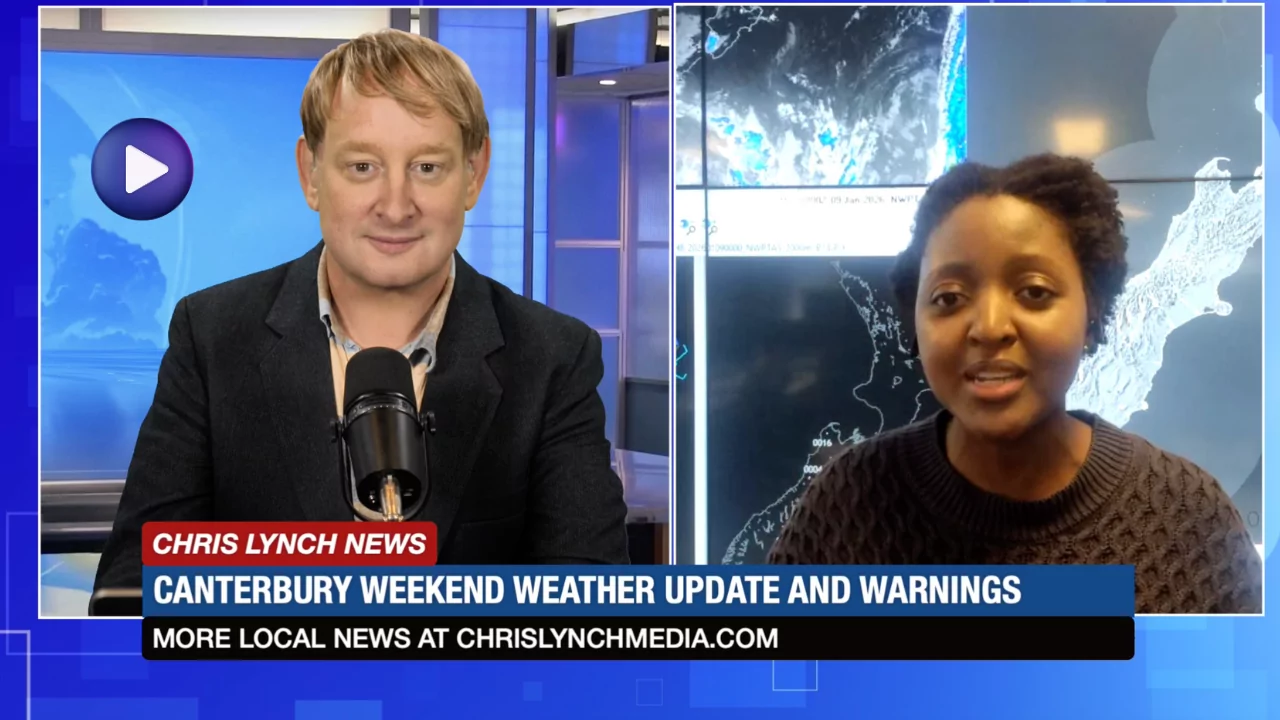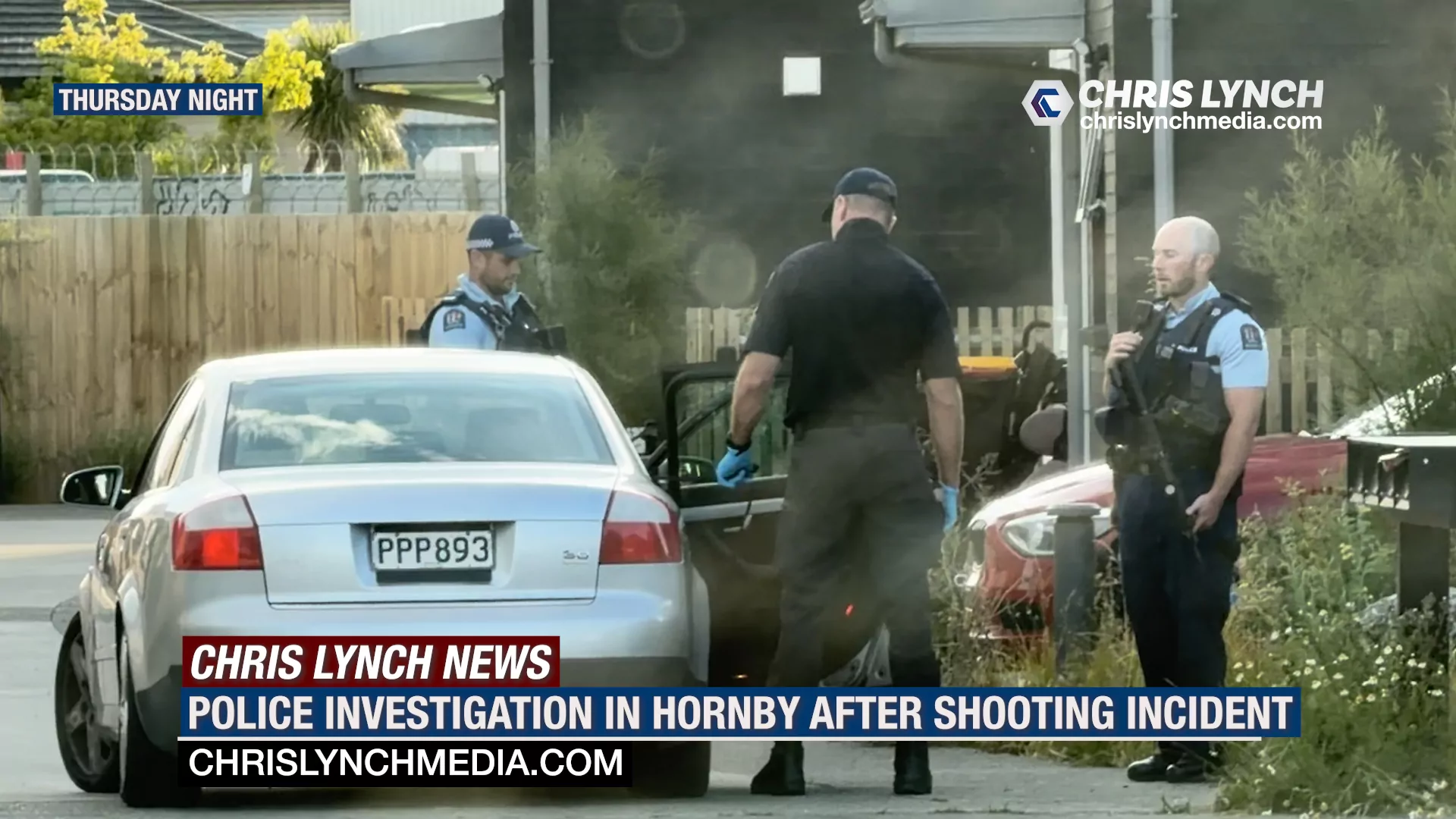Escaped youth tracked by Eagle helicopter, found hiding in New Brighton
The young person who escaped from a youth justice facility in Rolleston has been located...
Christchurch residents hoping to see the removal of chlorine from their water supply have been told the city still faces key infrastructure challenges, despite recent scientific findings confirming the high quality of its source water.
During an in-depth interview, Water Services Authority Chief Executive Allan Prangnell and Head of Operations Steve Taylor said while Christchurch’s aquifer water is some of the best in the world, the risk lies not in the source, but in the distribution network.
“Residents are very lucky. You’ve got some of the highest quality water that you extract from your aquifers in the world,” Prangnell said.
New research presented to Christchurch City Councillors confirmed the absence of viruses in the city’s groundwater, removing one of the two main reasons for chlorination. However, Prangnell said the second reason – the risk of contamination during distribution – remains unresolved.
“After you’ve extracted the water, you’ve got to run it through the pipes and the networks underground to get it to the house, and contamination events can happen in the network. If water can get out, contamination can get in,” he said.
Christchurch’s network is estimated to lose around 20 percent of its water through leakage, a rate Prangnell described as “not the worst, but not top of the class either.” These leaks reduce water pressure and create opportunities for contaminants to enter the system – including potentially from sewer pipes or commercial building backflows.
Steve Taylor added that contamination events have already occurred in the past, such as in Riccarton, prompting the continuation of chlorination.
“The positives are that you’re dealing with good source water. But the issue is potential recontamination as it’s passing through the pipes,” Taylor said. “There have been previous contamination events in the distribution zone.”
The regulatory requirement for chlorine was introduced following the 2016 Havelock North outbreak, which sickened thousands and was traced back to contaminated groundwater. Prangnell said that if chlorine had been in use at the time, the outbreak would have been prevented.
“Parliament recognised that some communities, like Christchurch, don’t want chlorine in their water. That’s why an exemption pathway exists,” he said.
The exemption process involves applying to the regulator with evidence the risks of contamination in the distribution network can be managed through other means. While some residents have questioned whether small levels of risk could be accepted, Prangnell said the law requires residual disinfection unless an exemption is granted.
When asked what Christchurch City Council would need to do to qualify for exemption, Taylor outlined three key focus areas: reducing leaks, installing effective backflow prevention systems, and improving emergency response capabilities to contain contamination incidents.
“There’s always a trade-off. It’s currently cheaper and more efficient to add chlorine than to undertake all of the risk mitigation measures. But if the council wants to pursue an exemption, we stand ready to work with them,” Taylor said.
The recent test results confirming no viral contamination have removed a previous technical barrier to Christchurch applying for exemption. Now, the focus is solely on the risks within the distribution network.
Prangnell said the timeframe for removing chlorine is now in the hands of the City Council.
“They may want to apply for one part of the network first, test it, and expand from there. Or they might prefer to do it all at once. There will be costs, and those decisions will rest with local leaders.”
Greenpeace has criticised the regulator’s remarks as “misleading,” citing high nitrate levels in Canterbury. But Prangnell dismissed the claim, saying Christchurch’s public supply comes from deep aquifers with no nitrate exceedances.
“They’re talking about private shallow bores used by farms and rural households. Christchurch’s public supply is regularly monitored, and nitrate levels are well within safe limits.”
Both Prangnell and Taylor said the water regulator remains committed to transparency and is willing to work collaboratively with the City Council and community.
“We’ve removed one of the barriers. The rest is with the locals now,” Prangnell said. “We’ll provide the information and technical support, but ultimately it’s for Christchurch to decide whether it wants to pursue the exemption pathway.”


